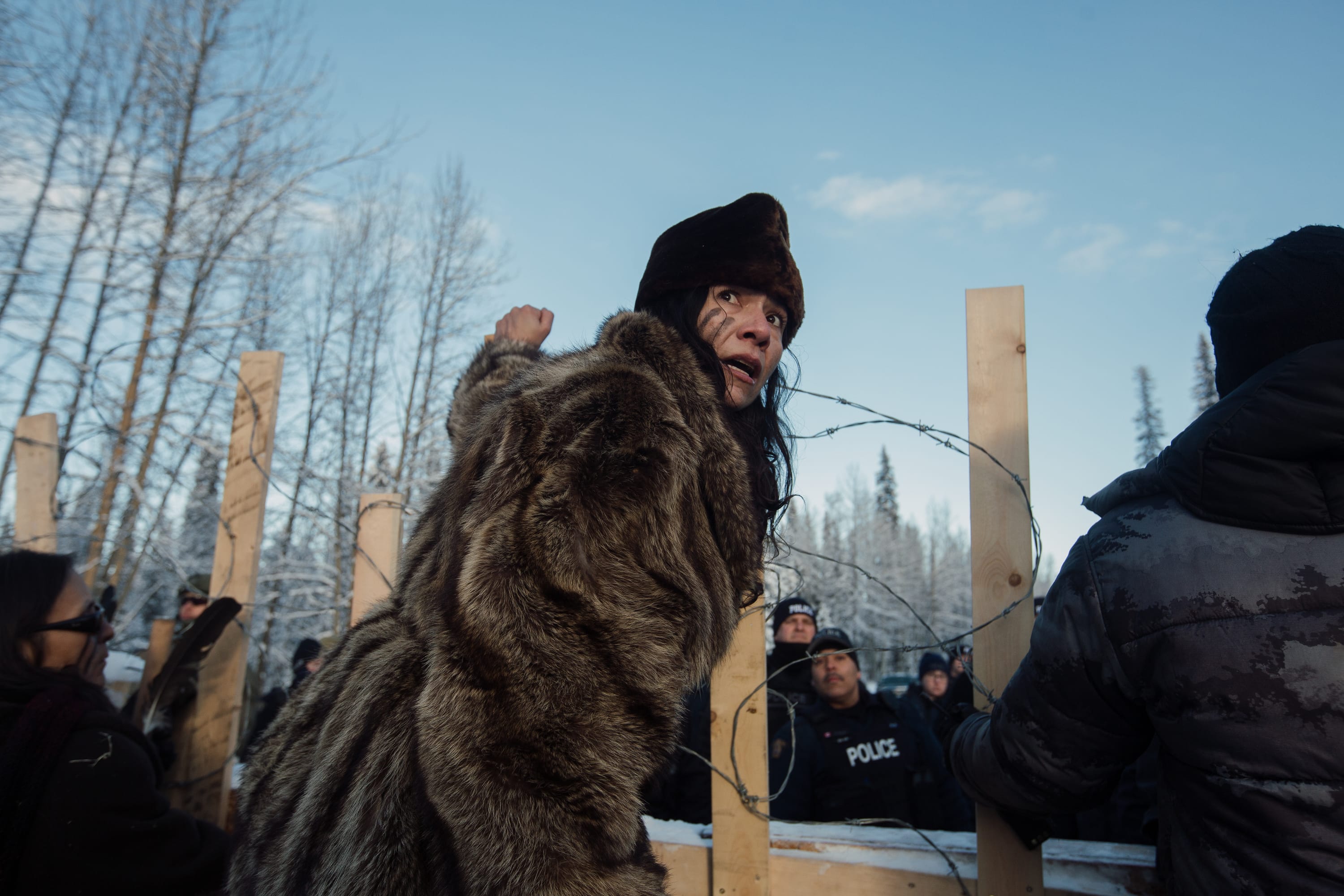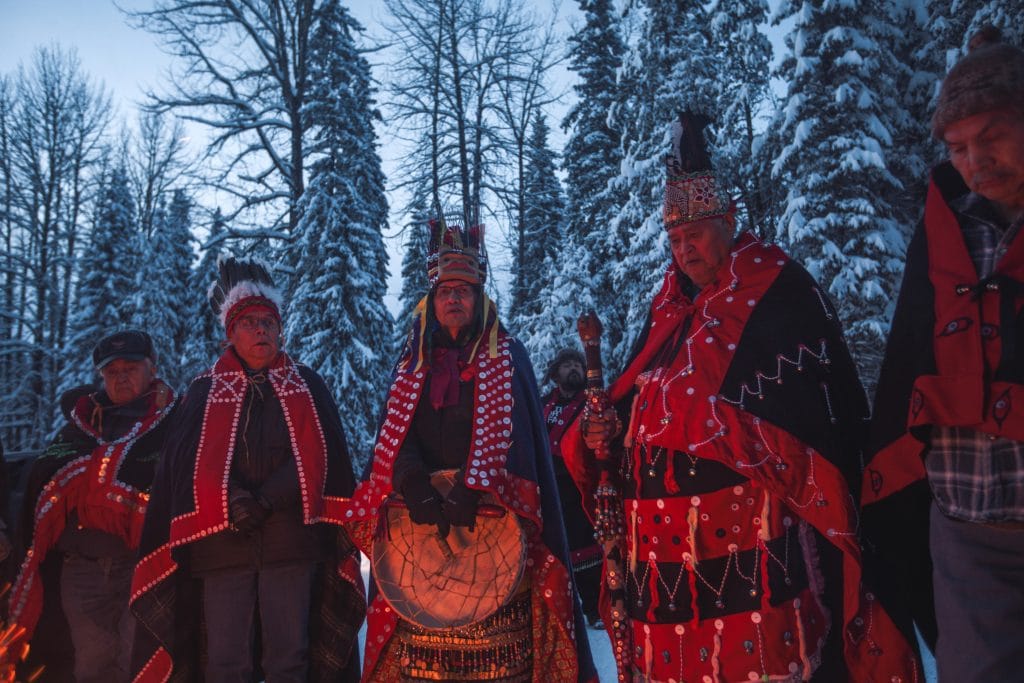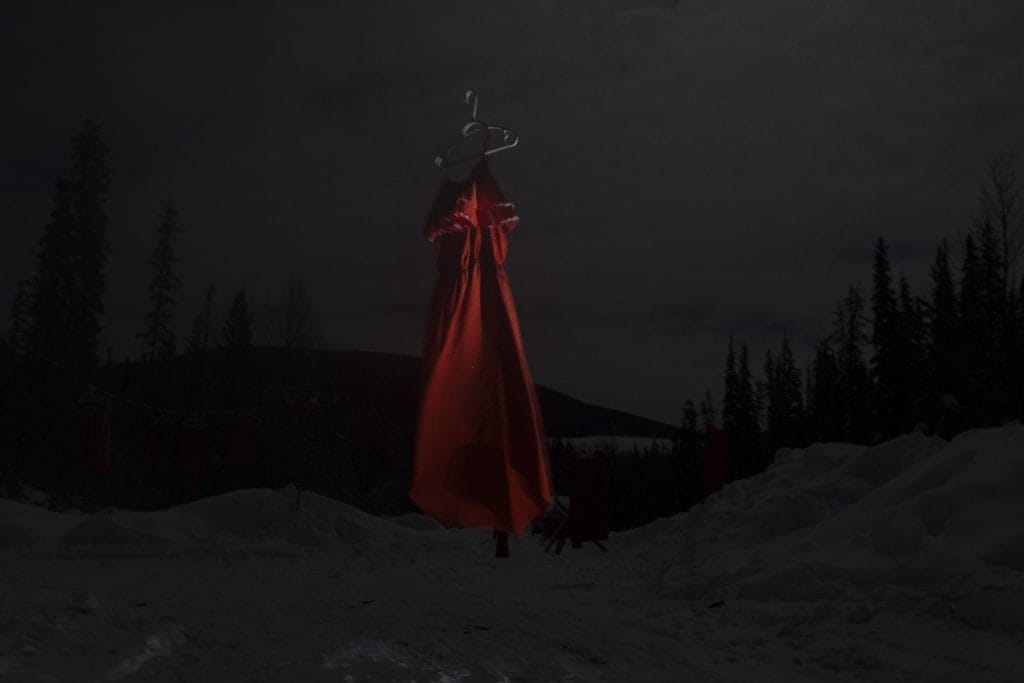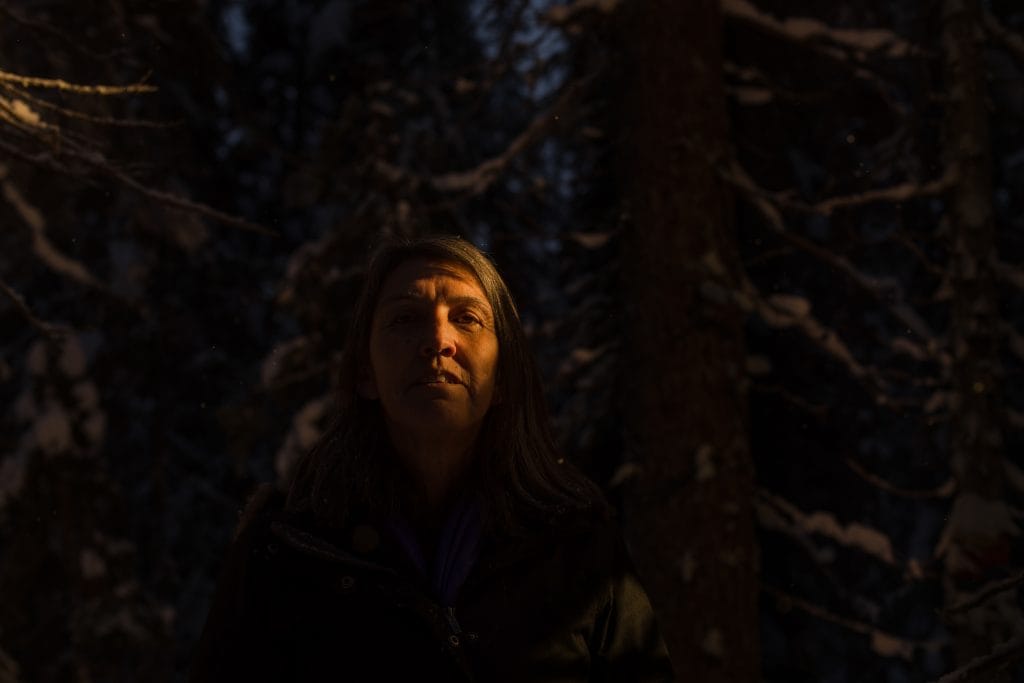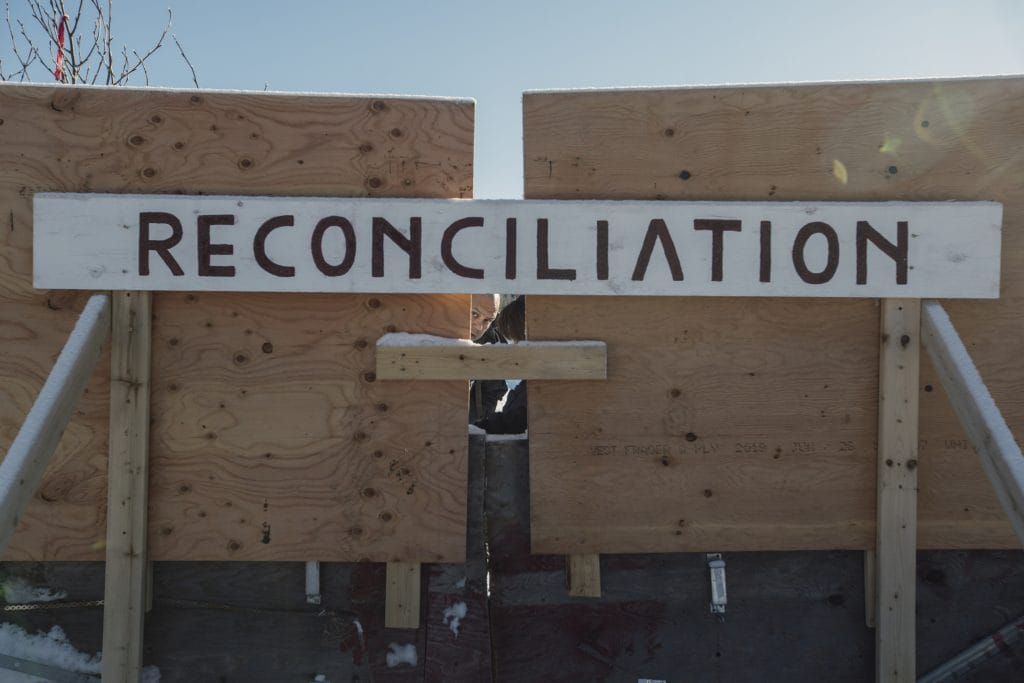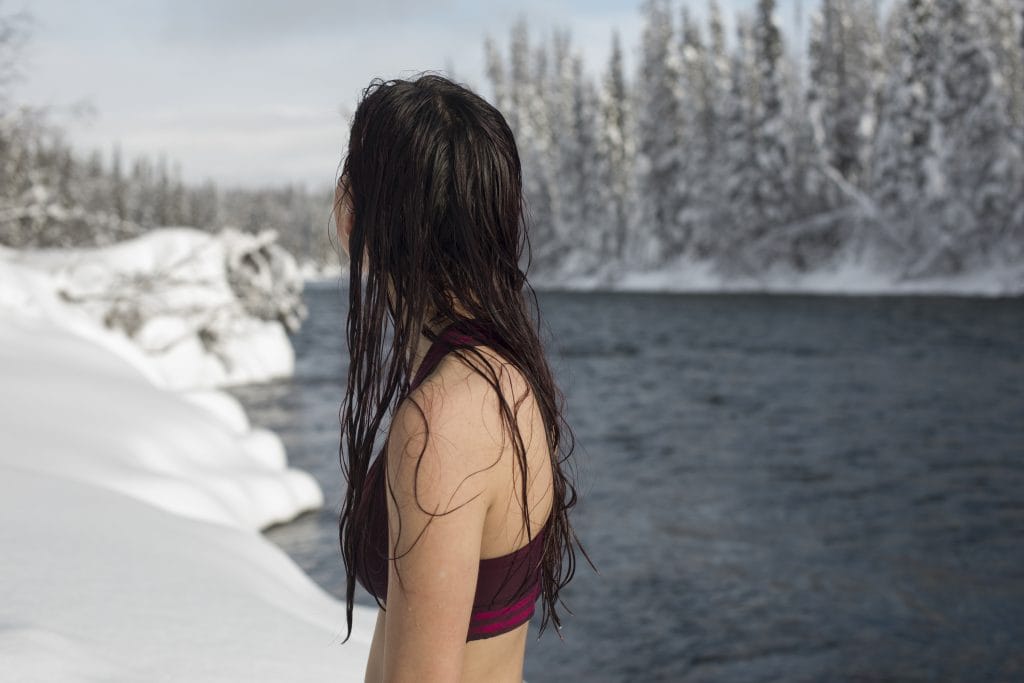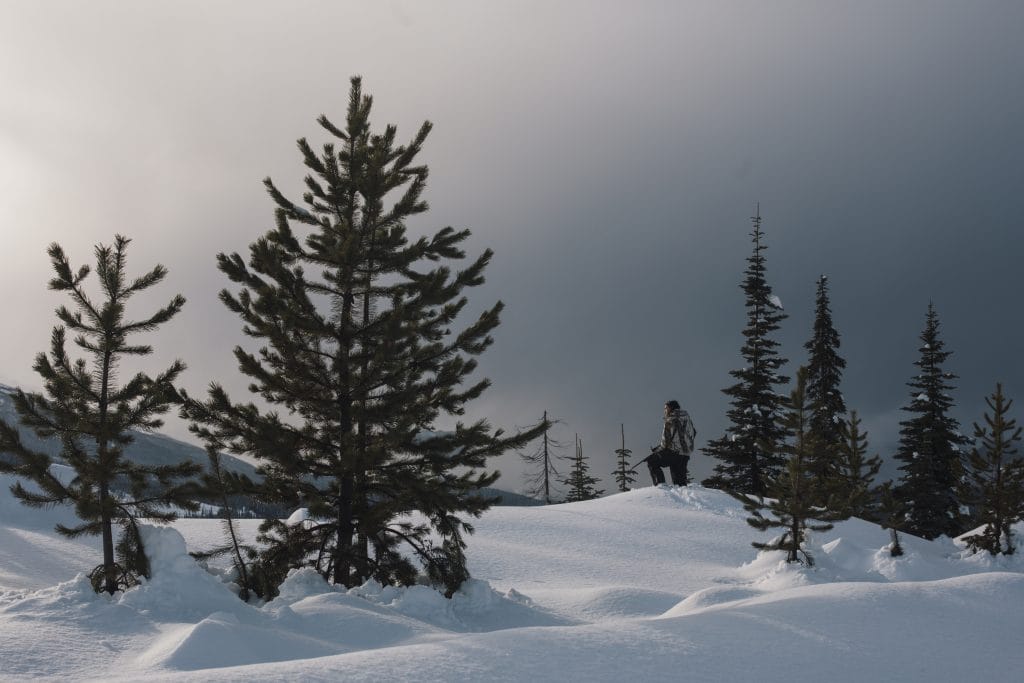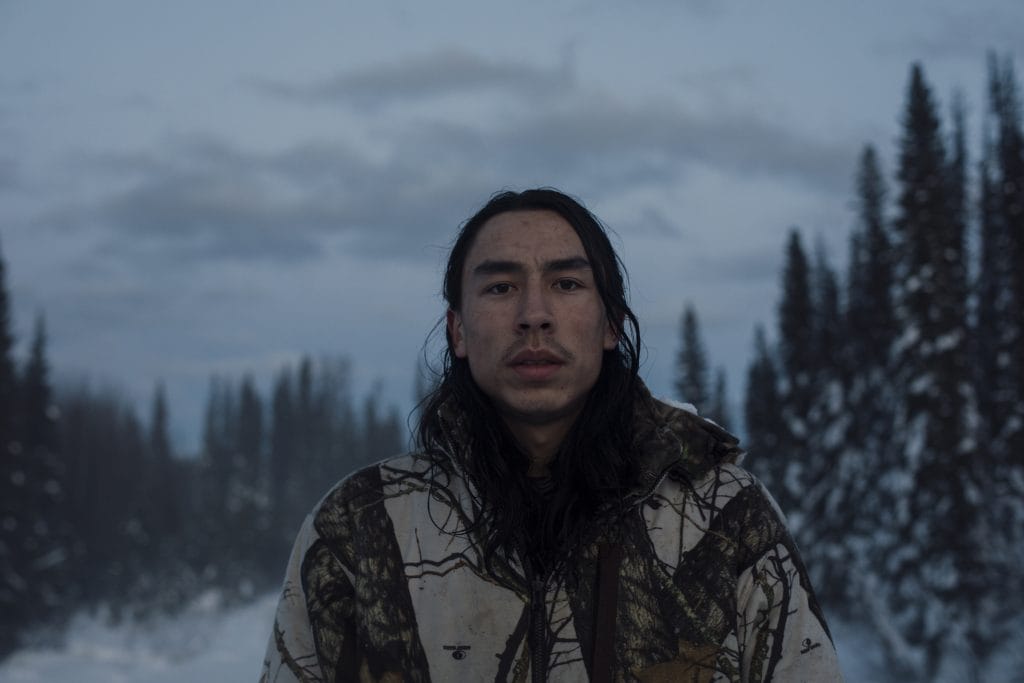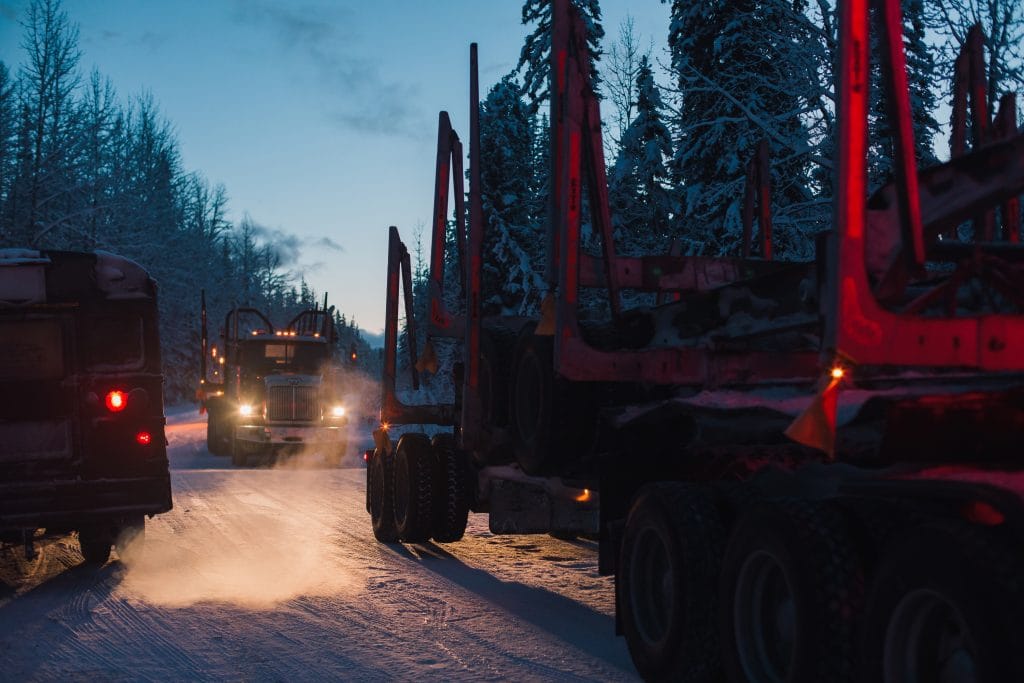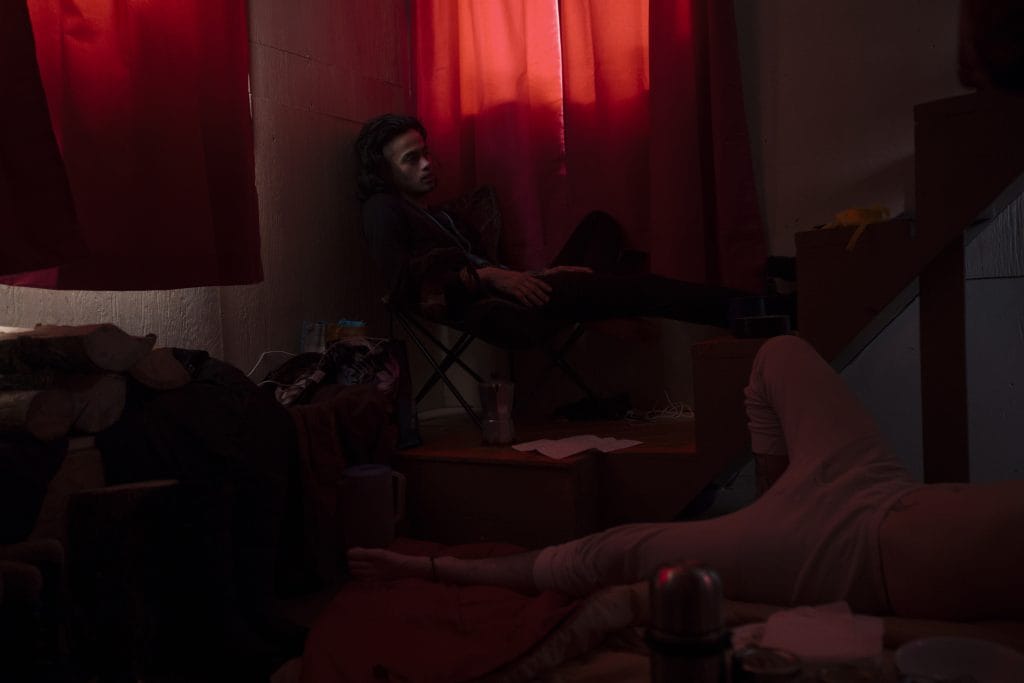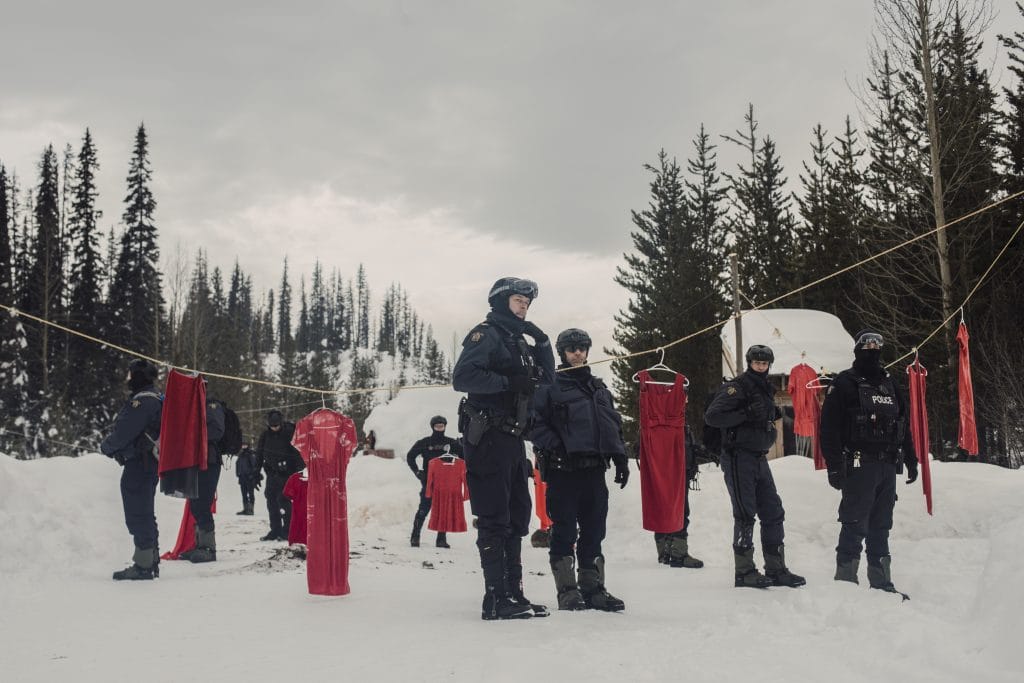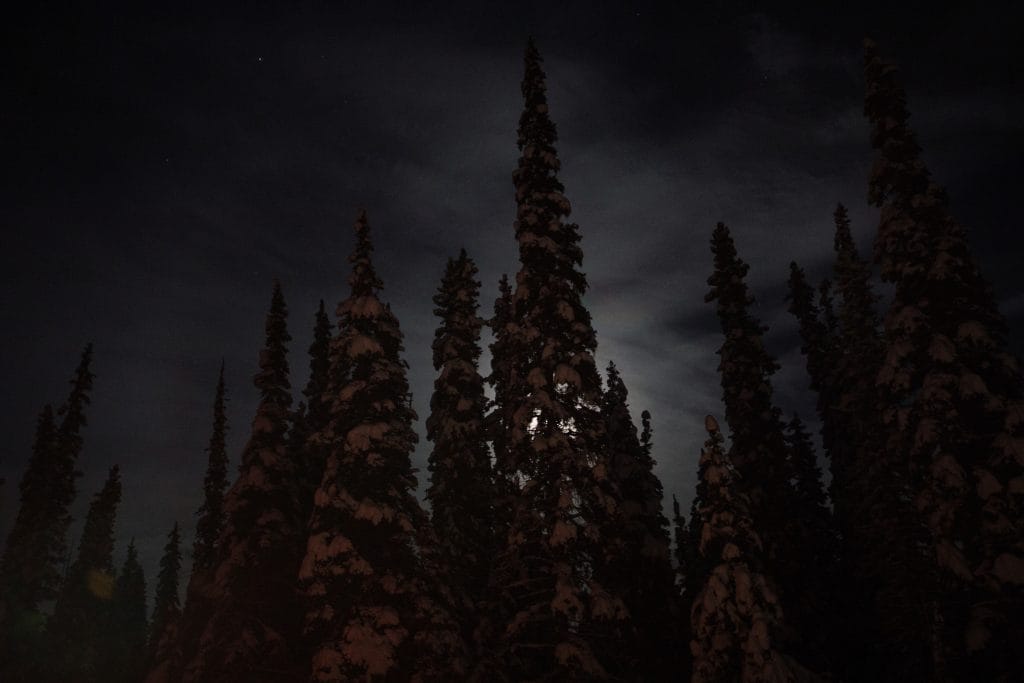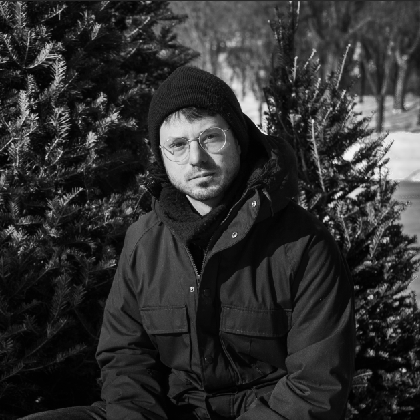Who has the right to decide on Wet’Suwt’en Lands?
On the night of February 6, 2020, the Royal Canadian Mounted Police arrested supporters of the Wet’suwet’en community who oppose the construction of the Coastal GasLink (CGL) pipeline on their territory.
Tensions had been rising since January as law enforcement increased their presence on Wet’suwet’en territory to enforce a British Columbia Supreme Court injunction that the gas company was legally entitled to carry out its work.
However, in the same month, the United Nations issued a notice urging Canada to halt construction of three energy projects, including CGL, until it received approval from the First Nations involved.
In the days that followed, attacks continued to dislodge community members from the barricades. An exclusion zone set up by the RCMP then limited access to the media, stakeholders and community members to their own territory.
Photographer Amber Bracken visited the community for the third time to document her struggle. This was not her first experience of this kind. The Albertan has worked on many First Nations-related projects. Among other things, she became known for her coverage of events in Standing Rock where a Sioux community and its allies fought for several months against a gas pipeline project in Dakota.
Although environmental and energy issues are at the center of these conflicts, it is North American neo-colonial relations that mobilize Amber’s approach.
“Often the issues are energy-related, so I can sound like I’m anti-energy or something like that. But honestly, it doesn’t matter if it’s a wind farm or a solar farm. The project doesn’t really matter. If a community doesn’t want it on its territory, that’s the fundamental issue, in my opinion”.
The interventions of the authorities have provoked a national solidarity movement. Communities mobilized across the country, organizing rail blockades, occupations of government offices and fundraising events to support the people of Wet’suwet’en. According to the photographer, this large-scale collective response is a defining moment for Aboriginal claims patterns in Canada.
However, historical reconciliation can only take place through a holistic discussion. Journalism can contribute to this exchange. “When it comes to colonialism or colonization, with journalism, I don’t think there is a middle ground. I think you either actively question and shout it from the rooftops, or you add your silence to the complicity of the situation. Because fundamentally colonization is a system that was built to dispossess indigenous people of their lands so that we can have them. We have not yet changed the system. Therefore, unless we actively denounce it, we are helping to support it so that it will continue in the future. »
As a society, if we really want reconciliation, it is imperative that we address the issue of outstanding land claims and include everyone in a great conversation about our history and our future.

